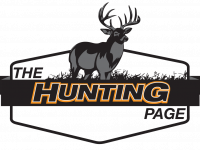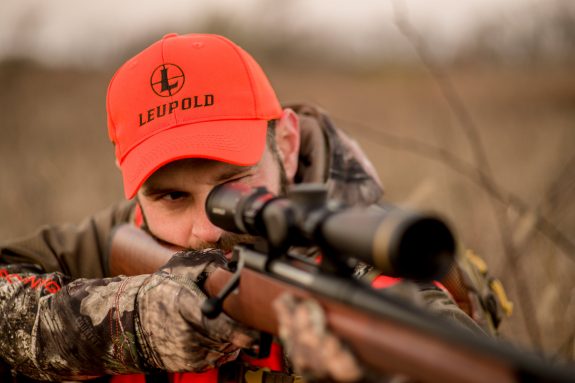Having been a guide before in the state of Wyoming, I was able to learn one thing about guides and outfitters. There are the good, bad and ugly ones. I would like to think I was one of the good ones, but there are plenty of bad and ugly ones around the United States.
After months, even years of saving and working all the over-time you can you finally have enough money to go on the hunt you have always dreamed of. There is so much that can ruin a hunt or make it successful. And, the truth is, it rarely has anything to do with whether you harvest an animal or not. The outfitter you choose will make or break your hunt.
Many guides are everything they say they are and more. They are experienced, hunt in areas with a good population of game and have the best equipment available. Their food is great, beds are comfy, and each and every person you meet makes you feel at home. And there are the guided hunts you can’t wait to end. There are way too many hunters, food is terrible, animals are scarce and the staff is inexperienced. These are the operations you must avoid like the plaque.
I have seen it over and over where hunters flip through the back of magazines, find the nicest looking ad, call and book a hunt. No questions asked or research done. Their thinking tells them that if the guide spent so much money on advertising he must be good. Sometimes this is true, and other times it is not. Are you willing to risk all of your hard-earned money on a chance? Unfortunately, some hunting guides are more of a con-artist than they are a guide. Maybe their brochure or magazine ad is full of photos of big elk killed by their clients. That is all good except when only a couple of clients per year are seeing the elk of the caliber portrayed in the photos.
Unless you go to a high-fence operation to “hunt” there is no such thing as a guaranteed hunt. The only guarantee a guide can offer is accommodations as advertised, equipment as promised, and that he and his staff will do everything in their power to get you an animal. Avoid any outfitter that will guarantee a kill he or she is lying. If they are lying about this, what else are they lying about.
Finding a guide is not hard to do, finding a good one is. Begin by looking in back of magazines for ads. Attend trade shows to talk with guides face to face. Maybe you have a buddy who has been on a hunt similar like the one you are planning. He can probably give you some good leads. Even though most hunting magazines can’t recommend outfitters, articles often speak of outfitters. This can be a good source of information. Booking agents will not stay in for long if they do not provide the very best hunts. The price of the hunt might be slightly more, but often worth the extra cost.
Contact a lot of guides to find the one that offers what you are looking for. Do you want to hunt from a lodge, or would you rather pack in on horses and hunt from a tent? Find the outfitter who provides the length of the hunt you prefer. Will he allow extra days to hunt if you need and want them? Locate a guide that is actually experienced as a bow hunter. You know as well as I do that there is a big difference between killing an animal with a bow from 40 yards, and a rifle at 275 yards. Make sure your guide also knows the difference too. If you are on a hunt for mule deer, is there an opportunity to hunt antelope after you tag a deer? Compare prices from one outfitter to the next. What is included in the price? Is lodging, licenses, field care and tips included in the price? Now is the time to learn of any hidden charges. I recommend going with an all exclusive guide. It will save you money in the long run.
Another recommendation on price, do not be cheap. As with most everything else in life, you get what you pay for. Since the hunt you are planning very well might be a once in a lifetime hunt, save up till you can afford the very best. This might mean putting the hunt off for another year or two. But the wait could mean the difference between a hunt that provides great memories that will last a lifetime, compared to a nightmare you can’t wait to end.
After talking with the guides and you think you have found one that suits your needs, it is time to take the investigation one step further. Likely the most important part of finding a qualified guide. Contact past clients.
If a past client did not kill an animal, but still has good things to say about the guide, you have probably found the real deal. Have a list of questions ready to ask both successful and unsuccessful hunters. Talking with only hunters who killed an animal will give you the wrong impression of the guide more times than not. Even if the services of the guide were terrible and the overall experience was nauseating, about the only thing hunters remember is that filled a tag. The excitement of the kill unfortunately will equal out the playing field, but not always. Contact, preferably by phone, as many references as you can. If a guide chooses not to give you a list of references, stop considering him at once.
Just as important as knowing as much as you can about the guide you intend to hire, you have to know what to expect of yourself. This is very important in order to have a memorable experience. Do you require special dietary needs? If the answer is yes then make sure the guide handles them. Are you physically able to endure the strenuous work that will likely be needed to kill an animal? If not, start getting ready now. Will you be happy with harvesting any animal, or does it need to be a true trophy? If any animal will do, book a hunt with a guide that has access to ground with high populations of game compared to an area with few, but big animals. If you would rather not ride horses into camp, book a hunt that is lodge-based. Know your weapon and what your effective range is with it. Practice religiously. Know your once-in-a-lifetime hunt might come down to one shot. Make it count. Ask any guide what their biggest gripe is with hunters and you are likely to hear: out of shape, and ones who are not proficient with their weapon.
Choosing the right outfitter is not something that should be taken lightly. As I said in the beginning of this article, the guide you hire will either make or break your hunting experience. Begin your search process well in advance. The best outfitters book far in advance, with some as many 1 to 3 years. Yesterday was too early to start looking. By the time you have found your guide, you have probably spent many hours on the phone or in front of your computer taking notes. Unfortunately, your phone bill reflects all of these calls, but, in the long run it will be worth it.
Photo: Howard Communications




